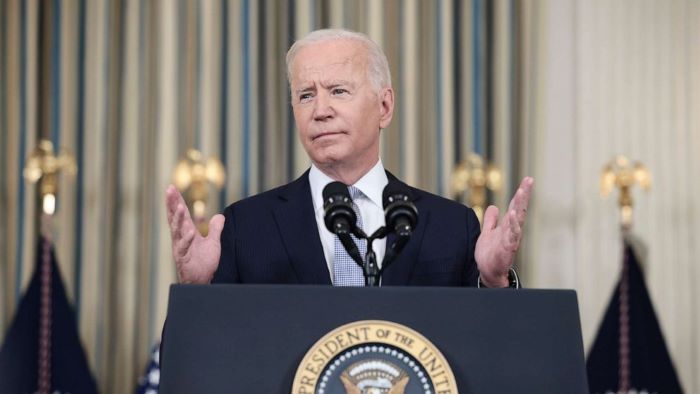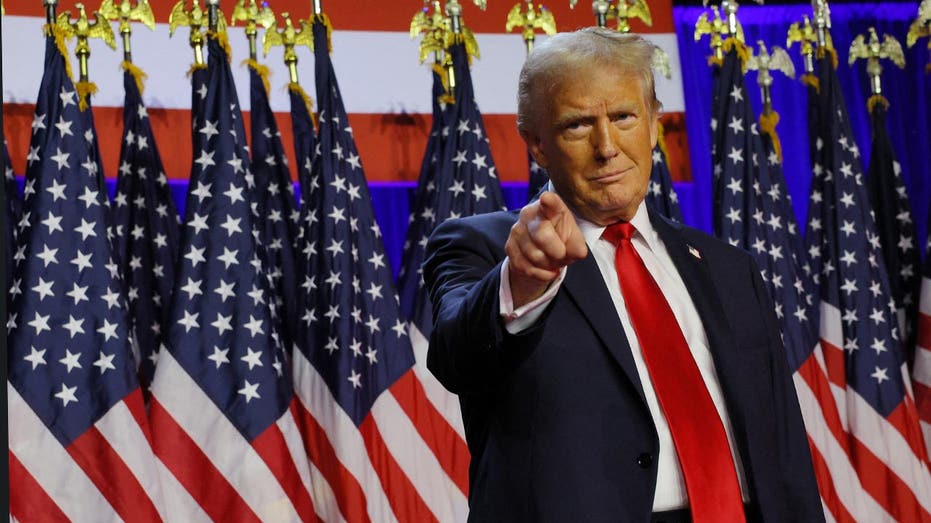Social media cases head to SCOTUS — but conservatives may have already won
Two major cases deal with GOP laws aiming to force Big Tech to carry all users’ viewpoints.


Big Tech platforms and their Republican critics are bracing for a faceoff in the Supreme Court on Monday over the policing of online speech. But in the real-world argument over who gets to post their views on social media, conservatives have largely won.
The two cases in front of the court have their roots in the post-Jan. 6 banning of Donald Trump from multiple social media platforms. When the then-president was kicked off for violating policies against incitement to violence, state lawmakers in Florida and Texas jumped in. They passed laws later in 2021 to tie the hands of tech companies and force them to keep all views online, and not deplatform political candidates.
Tech firms are arguing those laws violate their First Amendment rights, and the Supreme Court is now poised to get the last word.
But in the nearly three years since those laws were passed, the political tides on social media have also turned — largely in favor of conservatives. Self-described “free speech absolutist” Elon Musk bought Twitter and later renamed it X, transforming it from a more closely monitored forum into a loosely policed free-for-all.
Musk let Trump back onto Twitter in late 2022 — as well as Rep. Marjorie Taylor Greene (R-Ga.) and other far-right figures who had been barred. Meta reinstated Trump to Facebook and Instagram in early 2023; YouTube let him back on in March 2023.
And an ecosystem of conservative-leaning apps has grown, with Trump launching his own platform, Truth Social, and far-right sites like Parler and Rumble gaining popularity.
“We’re in a different place now,” Nu Wexler, a tech consultant who previously worked at Twitter, Facebook and Google, told POLITICO. “You could argue that Texas and Florida laws are no longer really necessary because conservatives have more options now for social platforms.”
Wexler said that platforms have acted not out of any legal requirement, “but in response to political pressure and this lingering anxiety that tech companies have that they are somehow going to make conservatives angry.”
Former Florida state Sen. Ray Rodrigues, one of the Republican authors of the Florida law, agreed social media has become friendlier to conservatives again. “We’re seeing less of the deplatforming now,” he said.
He attributes much of the change to Musk’s Twitter takeover, but Rodrigues took some credit for helping force companies to open up, saying the platforms other than Twitter have only changed their behavior due to the “potential stick of a Supreme Court ruling that upends their industry.”
He still argues his Florida law should stand to prevent backsliding.
The cases being heard Monday — Moody v. NetChoice and NetChoice v. Paxton — stem from challenges by the tech industry’s key lobbying groups, NetChoice and the Computer and Communications Information Association. They sued both Texas and Florida soon after the laws passed, saying the measures violate tech platforms’ First Amendment rights to editorial discretion by forcing them to carry content that violates their rules.
The social media sites’ replatforming of conservatives shows how "absurd" the states’ laws were to begin with, said Carl Szabo, NetChoice’s vice president and general counsel. He said businesses should be able to act on their own best interests in a free market. "No government entity should be allowed to decide what speech is or is not allowed on the internet."
Legal experts largely expect the social media companies to prevail, and both laws have already been stayed by lower courts. The Supreme Court is taking them up after federal circuit judges came to opposite conclusions on the laws’ constitutionality: The 11th Circuit largely struck down Florida’s law, and the 5th Circuit sided with Texas.
“There’s no right answer if you have to try coming to compliance by hosting this lawful but awful content,” Szabo said. He argues the companies would be forced to carry offensive content violating their policies, like Nazi propaganda and terrorist content, which could upend their advertising business models.
If upheld, Texas’ law would prohibit platforms from censoring on the basis of viewpoint, with exceptions for incitement of violence, criminal activity and child exploitation. Florida’s law comes with hefty fines of $250,000 per day for banning statewide candidates, and $25,000 for local candidates.
The laws became lightning rods for the national debate over free speech — highlighting the tension between social media platforms’ obligations to enforce safety and to allow wide-open exchanges of ideas.
The restoration of many far-right figures has taken some of the oxygen out of that debate. But some Republicans are still fiercely waging the fight over what they see as tech-industry censorship of their views.
House Judiciary Chair Jim Jordan (R-Ohio) has been subpoenaing former White House officials in a yearlong probe alleging the Biden administration coerced platforms to censor claims around the 2020 election and Covid-19. And the Supreme Court next month will hear a case — Murthy v. Missouri — from GOP-led states that also allege President Joe Biden’s team violated the First Amendment in bullying platforms to censor speech.
“History is much greater than what happened in 2021,” said Adam Candeub, Trump’s former acting assistant secretary of commerce, who filed an amicus brief in the cases supporting the states’ arguments. “This is about whether or not a democracy can tolerate or survive when you have a small group of companies being able to essentially put their thumb on the scale.”
Even if the Supreme Court strikes down the Texas and Florida laws, the breadth of the ruling could determine the fate of existing and future state laws seeking to regulate tech companies. States passed dozens of laws regulating tech related to kids’ online safety in recent years, four of which NetChoice is currently challenging over claims they also violate the First Amendment.
A bipartisan group of more than 20 state attorneys general even called for the court to “make clear” they can regulate social media, as long as their laws are consistent with the First Amendment.
Daphne Keller, who teaches internet law at Stanford Law School, said the justices could write a narrow ruling saying the platforms won. “It's not that they have to absolutely close the door to all future laws, but they don't give any sort of instruction manual for how another law might survive review,” she said.
Ultimately, no matter how the court rules, states will likely continue to pass laws seeking to rein in tech. NetChoice’s Szabo wants a court ruling to clarify that the platforms’ speech rights are constitutionally protected.
“To the extent that any state or any governmental entity thinks that the First Amendment does not apply to websites or that you can just sneak your way through the First Amendment, this should make crystal clear that the First Amendment is here and it protects all of us,” he said.



